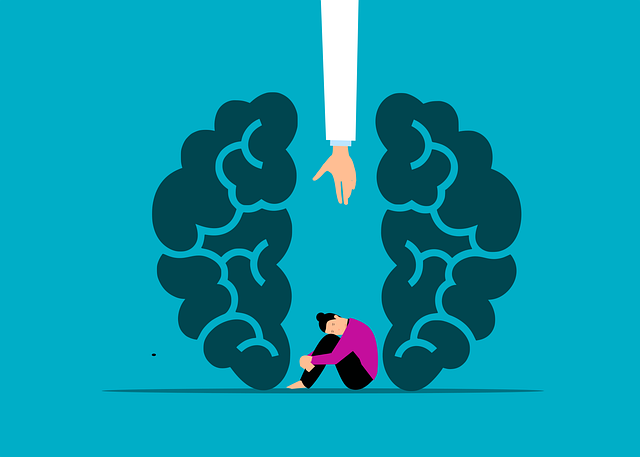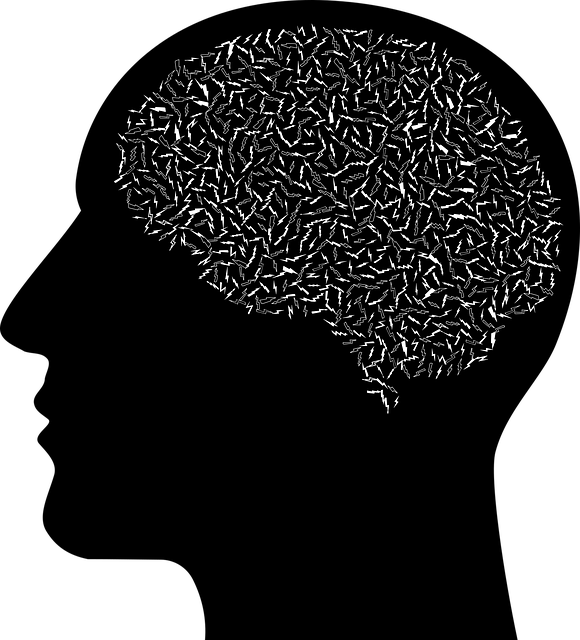Healthcare provider burnout, driven by stressful environments and long hours, causes emotional exhaustion, depersonalization, and decreased job satisfaction. Early recognition is crucial for preventing burnout through strategies like Aurora Cognitive Processing Therapy (ACPT) and mindfulness meditation, which reframe negative thoughts, foster resilience, and promote emotional regulation. Increasing public awareness about burnout dynamics and available resources is essential for creating supportive work environments in healthcare institutions. By integrating ACPT into support programs, organizations can manage stress, enhance job satisfaction, and prevent long-term burnout among healthcare professionals.
Healthcare provider burnout is a growing concern, impacting not only individual well-being but also patient care. This article explores effective prevention strategies to combat this rising issue. We delve into understanding burnout among healthcare providers and highlight innovative solutions like Aurora Cognitive Processing Therapy. Additionally, we discuss creating supportive work environments, promoting self-care, and long-term mitigation tactics based on evidence. By implementing these strategies, healthcare organizations can foster resilience and ensure a healthier, more sustainable workforce.
- Understanding Burnout Among Healthcare Providers
- The Role of Aurora Cognitive Processing Therapy in Preventing Burnout
- Creating Supportive Work Environments
- Promoting Self-Care and Resiliency
- Evidence-Based Strategies for Long-Term Burnout Mitigation
Understanding Burnout Among Healthcare Providers

Healthcare provider burnout is a growing concern in the industry, with high-stress environments and long working hours contributing to significant levels of fatigue and disengagement. Burnout isn’t just physical; it’s a complex interplay of emotional exhaustion, depersonalization, and reduced personal accomplishment. Recognizing these signs early is crucial for implementing effective burnout prevention strategies for healthcare providers.
The role of Aurora Cognitive Processing Therapy (ACPT) in mitigating burnout has gained attention. This therapeutic approach helps professionals identify and reframe negative thought patterns related to work, fostering resilience and emotional regulation. Additionally, integrating practices like mindfulness meditation into daily routines can promote a sense of calm and presence, enhancing coping mechanisms against workplace stressors. In the context of rising public awareness campaigns development, educating healthcare providers about burnout dynamics and available resources is vital for creating a supportive ecosystem within healthcare institutions.
The Role of Aurora Cognitive Processing Therapy in Preventing Burnout

Aurora Cognitive Processing Therapy (ACPT) has emerged as a powerful tool in the arsenal against healthcare provider burnout. This innovative therapy focuses on rewireing thought patterns and enhancing emotional intelligence, addressing the root causes of stress and exhaustion that can lead to burnout. By promoting mindfulness and self-awareness, ACPT enables healthcare professionals to manage their emotional well-being more effectively. Through this process, they learn to reframe challenging situations, cultivate resilience, and apply effective coping strategies, fostering a sense of balance and purpose in their demanding careers.
ACPT incorporates the mind over matter principles, encouraging practitioners to challenge negative thought cycles that contribute to stress and anxiety. This cognitive reframing approach empowers healthcare providers to view challenges as opportunities for growth rather than obstacles, thereby enhancing job satisfaction and overall emotional resilience. By integrating these techniques into their practice, healthcare professionals can create a healthier work-life balance, preventing burnout in the long term.
Creating Supportive Work Environments

Creating supportive work environments is a vital strategy to combat burnout among healthcare providers. Organizations can foster a sense of belonging and purpose by implementing policies that prioritize employee well-being. This includes promoting flexible work arrangements, ensuring reasonable workload distribution, and providing regular opportunities for collaboration and social interaction. A positive work environment, where staff feel valued and respected, significantly reduces stress levels and enhances job satisfaction.
Incorporating evidence-based practices like Aurora Cognitive Processing Therapy (ACPT) into employee support programs can be highly beneficial. ACPT is an effective therapy that helps individuals manage stress and anxiety relief by challenging negative thought patterns. Additionally, organizing Mental Wellness Podcast Series Production can empower healthcare workers to develop coping skills, further contributing to their overall mental wellness.
Promoting Self-Care and Resiliency

In the high-pressure world of healthcare, preventing burnout among providers is paramount. Promoting self-care and resilience plays a crucial role in achieving this goal. Mind Over Matter principles emphasize the importance of emotional healing processes and cognitive reframing. Techniques like Aurora Cognitive Processing Therapy (ACPT) offer powerful tools to navigate stressful situations, challenge negative thought patterns, and foster adaptability. By integrating these practices into their routines, healthcare professionals can build mental fortitude and enhance their ability to manage stress effectively.
A comprehensive approach involves regular risk assessments for mental health professionals, enabling early identification of potential burnout triggers and facilitating timely interventions. Through self-care initiatives, emotional well-being is prioritized, ensuring providers have the resilience needed to navigate the demanding landscape of healthcare. This holistic strategy not only benefits individual practitioners but also improves patient care by maintaining a dedicated and resilient healthcare workforce.
Evidence-Based Strategies for Long-Term Burnout Mitigation

In the pursuit of long-term burnout mitigation, healthcare providers can benefit from evidence-based strategies that go beyond immediate stress relief. Aurora Cognitive Processing Therapy (ACPT) stands out as a game-changer in this domain. By focusing on reprocessing traumatic memories and challenging negative thought patterns, ACPT helps professionals reframe their experiences, fostering resilience and reducing the emotional burden accumulated over time. This therapy is supported by robust research, demonstrating its effectiveness in improving mental health awareness and enhancing coping mechanisms.
Complementing ACPT, Self-Care Practices and Resilience Building play pivotal roles in burnout prevention. Encouraging regular engagement in activities that promote well-being, such as exercise, mindfulness, and quality sleep, empowers healthcare workers to maintain a healthy work-life balance. Mental Health Awareness programs can further equip them with the knowledge and skills to recognize and manage stress levels effectively. These strategies collectively contribute to building a robust defense against burnout, ensuring professionals remain motivated, engaged, and dedicated to patient care in the long term.
Healthcare provider burnout is a significant concern, but through understanding its causes and implementing effective strategies, we can create more supportive work environments. Integrating evidence-based approaches like Aurora Cognitive Processing Therapy, fostering self-care practices, and promoting organizational resilience are key to long-term mitigation. By prioritizing these methods, healthcare organizations can prevent burnout, enhance job satisfaction, and ultimately improve patient care.














